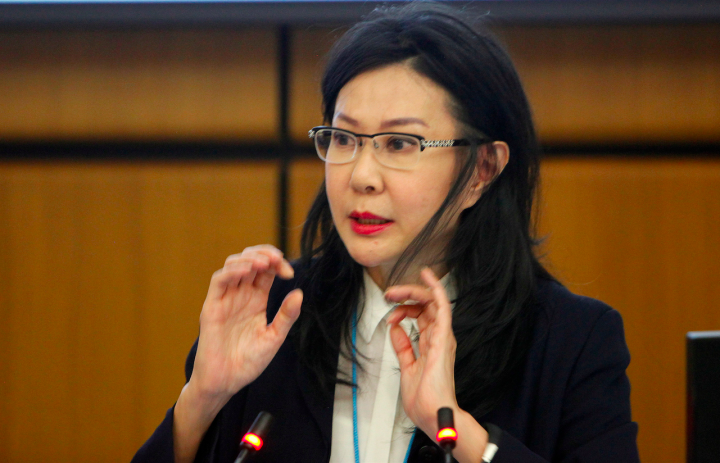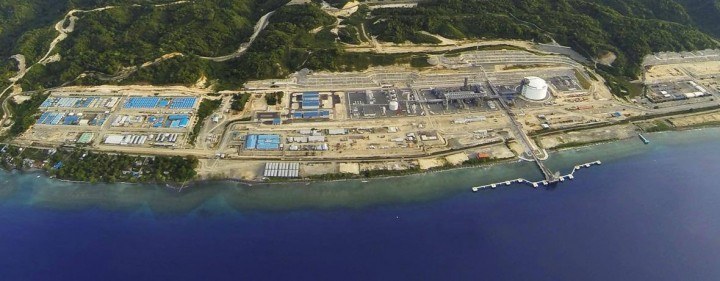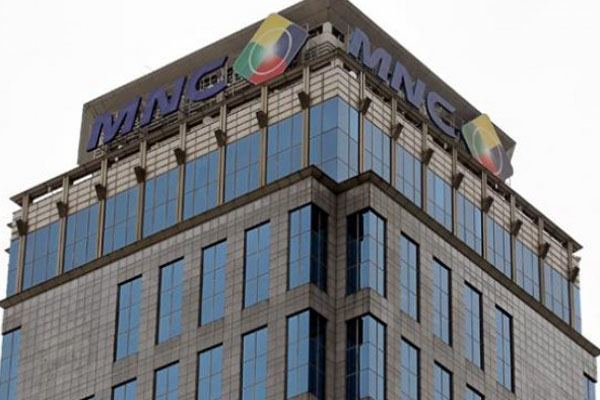SUMMARY
This is AI generated summarization, which may have errors. For context, always refer to the full article.

JAKARTA, Indonesia — In recent weeks, Tech in Asia asserted that Southeast Asia’s business landscape will soon belong to the generation that came of age at the turn of the millennium. In Indonesia, this means second and third generations of the nation’s family-owned conglomerates will have more decision-making power.
These young and ambitious individuals will inevitably start looking for new investment opportunities. Deep pocketed millennials in Indonesia have legacies to uphold, but they’ll also be expected to chart new territories and stake new claims. In this writer’s opinion, those new claims will undoubtedly be in tech.
Tech investing is attractive to this group of millennials for a number of reasons. First, they inherently understand the potential of Southeast Asia’s digital economy far better than their parents. Second, new tech ventures are less risky in terms of upfront capital, yet if successful, can yield large upside benefits.
A family-run firm in Indonesia that’s made its fortune in oil palm plantations, for example, is far less likely to bat an eye at a US$100,000 seed investment in a fledgling ecommerce firm than it would about pumping millions into a new Kalimantan plantation.
Mitigating overhead costs is the name of the game. Likewise, a real estate tycoon is surely less risk averse about coughing up US$300,000 for a dating app than he would be about building a new shopping mall super block in West Jakarta – we’re talking hundreds of millions.
In fact, the transition has already begun. Indonesia’s big families recognize they must be a part of the tech boom, or face certain redundancy in 10 years of time. In no particular order, here are 10 of Indonesia’s family-owned conglomerates that have begun investing in the nation’s tech startups. While not all of them are driven by millennial heirs, they are likely listening very closely to those that are.
1. Lippo Group
 In the past year, Indonesia’s Lippo Group has certainly been the most vocal about its role in the nation’s tech and ecommerce landscape. Historically, the firm is well-known as one of the largest real-estate development companies in Southeast Asia. It also has other large scale holdings such as Siloam Hospitals, the nation’s Matahari Department Stores, and many more in Indonesia.
In the past year, Indonesia’s Lippo Group has certainly been the most vocal about its role in the nation’s tech and ecommerce landscape. Historically, the firm is well-known as one of the largest real-estate development companies in Southeast Asia. It also has other large scale holdings such as Siloam Hospitals, the nation’s Matahari Department Stores, and many more in Indonesia.
In recent months, Lippo launched and invested in MatahariMall, an ecommerce firm that hopes to dethrone Lazada Indonesia as the number one estore in the archipelago. Lippo Group has made several other tech investments, but the most noteworthy move it’s made to date has been its sponsorship in Venturra Capital, a US$150 million fund for startups in Indonesia and Southeast Asia.
2. Sinar Mas

Sinar Mas is also one of the largest and most powerful conglomerates in Indonesia. The company was founded by a Chinese Indonesian tycoon, Eka Tjipta Widjaja, and operates in different sectors such as pulp and paper, real estate, financial services, agribusiness, telecommunications, and mining.
Sinar Mas recently set up its own tech VC arm called Sinar Mas Digital Ventures(SMDV). The firm has invested in startups like aCommerce, Female Daily Network, GiftCard Indonesia, Cantik, and HappyFresh. Apart from SMDV, Sinar Mas is also the strategic sugar daddy of Ardent Capital, one of the most aggressive ecommerce investors in Indonesia and Southeast Asia.
3. Emtek

Founded in 1983 as PT Elang Mahkota Teknologi, Emtek began as a company providing personal computer services. Since then, it has evolved into a modern, integrated group of companies with three main business divisions: media, telecommunications and IT solutions, and connectivity. Today, Emtek is known as one of the largest media groups in Indonesia.
Emtek does most of its tech startup-related activities through its subsidiary firm KMKLabs. Externally, however, it’s also invested in several local startups, including ecommerce site Bobobobo, marketplace contender Bukalapak, Muslim fashion estore HijUp, and online-to-offline ecommerce player Kudo.
4. Salim Group

The Salim Group is another one of Indonesia’s behemoths, with assets including Indofood, the world’s largest instant noodle producer, and Bogasari, a giant flour-milling operation. Over the last several decades, Salim Group has also been involved in property development and the leisure industry. It has tentacles in hotel and resort development, golf courses, and commercial real estate.
Salim Group is somewhat of a quiet player in Southeast Asia’s tech investment scene. Second generation company owner Anthoni Salim’s Philippine Long Distance Telephone Company invested US$445 million for a 10 percent stake in emerging markets tech company builder Rocket Internet. The Salim Group may have been the first company to get into ecommerce in Indonesia back in 1997. Although it failed to have anything take off back then, the firm claims it will once again try to build an ecommerce giant.
5. Djarum

Djarum is a historic tobacco company in Indonesia, which dates back to the early 1950s. By the 1970’s Djarum was one of the largest clove cigarette suppliers in the world, and owners Budi and Bambang Hartono decided to diversify the company. Following the Asian financial crisis in 1998, Djarum was part of a consortium (which included Lippo Group) that bought Bank Central Asia.
Djarum owns 51 percent of the bank. The Hartono family is consistently named Indonesia’s richest family, with their net worth clocking in somewhere around US$16.5 billion.
Budi’s son Martin Hartono got into tech investment several years back when he established Global Digital Prima (GDP) Venture, under Djarum. GDP Venture’s two most notable investments include online community Kaskus and ecommerce site BliBli. Also under GDP Ventures is Merah Putih, Indonesia’s first tech and digital incubator, which has invested in Infokost, Bolalob,Mindtalk, DailySocial, Kincir, and Opini.
6. Kompas Gramedia Group
 Kompas Gramedia (KGG) is the largest media conglomerate in Indonesia. It began as a newspaper with a modest 4,800 copies in Central Jakarta, and since grew to a diversified holding that includes radio, magazines, television, bookstores, hospitality, and online.
Kompas Gramedia (KGG) is the largest media conglomerate in Indonesia. It began as a newspaper with a modest 4,800 copies in Central Jakarta, and since grew to a diversified holding that includes radio, magazines, television, bookstores, hospitality, and online.
KGG runs the Skystar Ventures tech incubator at Indonesia’s Universitas Multimedia Nusantara. The conglomerate also backs Skystar Capital, a separate and independent investment arm from Skystar Ventures. In the past, KGG also invested in Indonesia’s Apps Foundry, the parent firm of Scoop newsstand.
7. Ciputra Group
 Ciputra Group has penetrated more than 11 business sectors in Indonesia, including real-estate and property development. The group develops projects like shopping malls, hotels, apartments, health centers, agriculture sites, telecoms facilities, and more. Ciputra Group is one of the largest and most diversified property companies in Indonesia in terms of product, location, and market segments.
Ciputra Group has penetrated more than 11 business sectors in Indonesia, including real-estate and property development. The group develops projects like shopping malls, hotels, apartments, health centers, agriculture sites, telecoms facilities, and more. Ciputra Group is one of the largest and most diversified property companies in Indonesia in terms of product, location, and market segments.
While Ciputra hasn’t publicly invested directly into a tech startup, it is responsible for the Ciputra GEPI incubator in Central Jakarta, a training vessel to develop early stage startups. GEPI owns a co-working space and regularly hosts community events. It also claims to bring incubation benefits such as mentoring and access to funding. The vast majority of startups in GEPI are tech-focused.
8. MedcoEnergi
 MedcoEnergi is a publicly listed Indonesian oil and gas company. It was founded in 1980 by Arifin Panigoro. Its business activities include oil and gas exploration and production, drilling and rig services, electrical power generation, gas pipeline activities, and coal mining.
MedcoEnergi is a publicly listed Indonesian oil and gas company. It was founded in 1980 by Arifin Panigoro. Its business activities include oil and gas exploration and production, drilling and rig services, electrical power generation, gas pipeline activities, and coal mining.
MedcoEnergi backed Grupara VC in 2013, a venture firm headed by local entrepreneur Aryo Ariotedjo. The firm put money into tech startups like the now-defunct Lolabox and men’s fashion site Maskoolin, which recently raised another round of capital. Ariotedjo admits that Grupara has been somewhat inactive in recent years, but sources say we may see renewed activity from the VC in the near future.
9. MNC Group

MNC Investama (MNC Group) was established in Surabaya, Indonesia in 1989 by the now-billionaire Hary Tanoesoedibjo. The company initially focused solely on capital-market related activities. Since then, it has diversified and today is known for its involvement in sectors across the board, including media, transportation, and investments.
Back in 2013, MNC built a joint venture with China’s Tencent called MNC Tencent to tap further into Indonesia’s online market. While Jakarta’s tech scene didn’t hear much more about the joint venture since then, and Tencent’s WeChat never caught on in Indonesia, sources tell Tech in Asia MNC is still on the prowl for tech investments in the capital.
10. Bakrie Group

The Bakrie Group is a local conglomerate founded by Achmad Bakrie in 1942. It has diversified interests across several sectors including mining, oil and gas, property development, infrastructure, plantations, media, and telecoms. The group is one of the largest businesses in Indonesia, with 10 firms listed on the Indonesia Stock Exchange.
In January of 2014, social network Path closed a US$25 million series C roundwith Bakrie Group as the lead investor. Back in 2011, the firm also voiced interest when it said it would earmark US$11.5 million for Indonesia’s tech startups. Today, Bakrie Group is also a limited partner with local independent VC firm Convergence Ventures, but it has no control or say in how the firm operates.
This was taken from our content partner, Tech in Asia
— Rappler.com
BACA JUGA:
Add a comment
How does this make you feel?
There are no comments yet. Add your comment to start the conversation.